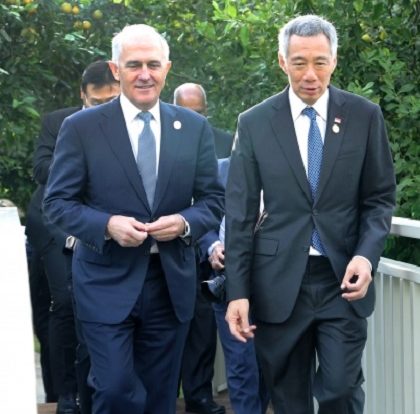Singapore PM urges civil servants to ‘understand political context’

Lee Hsien Loong, Singapore’s prime minister, has urged civil servants to work hand in hand with ministers and “understand the political context” in an address filled with praise for Singapore’s system and criticism for other countries’ operating models.
The city state, he said, is “currently in a sweet spot” due to politics and policies having worked “constructively together” over a long time, and is different to countries in Europe, which “is in crisis” and faces extremist parties gaining increasing political weight because governments’ “policies have not achieved the desired outcomes.”
In Singapore, on the other hand, “the system works well” and reforms have worked successfully because civil servants implemented the government’s policies with the “conviction that this was the right thing for Singapore”, as opposed to carrying out a “detached exercise doing something the political masters wanted which did not matter to them one way or the other.”
The “superior virtues of Singapore civil servants or ministers” and a “broad national consensus on values and priorities” have made Singapore successful and unique in the world, Lee claimed, adding that the nation must never “become like any other country, where the politics of division takes hold, and policies oscillate from one end to another with the political winds.”
Lee, who came to power following last September’s general election, went on to point to examples of governance models, which, in his view, work less well than that of Singapore: In America, around 8,000 public appointments change, according to a new administration’s preference. This model, he argued, “does not always work well,” adding that “it is hard for the president and his appointees to impose their will on the bureaucracy” and “sometimes whole departments are side-lined or given prominence.”
The British model, based on a permanent, “impartial” civil service, he said, has “not been so workable” in recent decades because the different political parties “no longer share the same fundamental assumptions” meaning “it is not so easy for the British civil servant to serve successive masters with very different priorities and policies.”
Britain’s Cabinet Office today includes almost 100 special advisers (political appointments), he added, arguing that “the need for gear meshing between [Britain’s] ministers and the civil service has increased.”
In Singapore, this “meshing” has worked because officials and politicians share “values like meritocracy, clean government, multi-racialism, inclusive development and economic growth” as well as “major unspoken beliefs that Singapore must survive in a harsh world, and no one owes us a living.”
However, he admitted that Singapore too faces the danger of extremism and radicalisation and urged public servants not to be complacent.
So while Singapore’s civil servants should be politically impartial, they should “understand the political context, and the thinking of the political leadership so that [they] will not come up with policies that are non-starters.”
Lee also urged civil servants to “have the tact and skill” to speak out if policies are unworkable.
For up to date government news and international best practice follow us on Twitter @globegov
See also:
Top Indian educationalist urges focus on universities, power supplies and high-tech manufacturing
Indian law links 1bn-strong ID database to benefits claims
India’s banking scheme draws in 200m new customers
Satellite night signal project could help India’s government spread electricity
Australia’s chief scientist calls for increased investment in renewable energy
World Bank appoints first female country director in Philippines





















